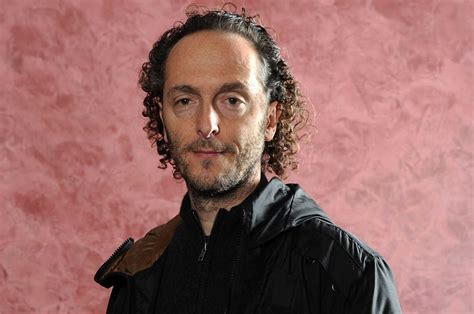A Quote by Oliver Stone
Every movie requires its own style. Just be honest to the story. Tell the story in the best possible way that is different, exciting and original.
Related Quotes
I think that when I'm telling a story, I'm doing the best I can to tell the story as fully as I can, and if there are various fractures that happen in the story, then that's just the very thing that the story is as opposed to my looking for avenues of difference in one story. They just really do exist. For me, anyway.
The Danger of a Single Story”, which has resonated with me immensely every time I read it. “Power is the ability not just to tell the story of another person, but to make it the definitive story of that person. The Palestinian poet Mourid Barghouti writes that if you want to dispossess a people, the simplest way to do it is to tell their story, and to start with, “secondly.
It's only a story, you say. So it is, and the rest of life with it - creation story, love story, horror, crime, the strange story of you and I. The alphabet of my DNA shapes certain words, but the story is not told. I have to tell it myself. What is it that I have to tell myself again and again? That there is always a new beginning, a different end. I can change the story. I am the story. Begin.
A story is a way to say something that can't be said any other way, and it takes every word in the story to say what the meaning is. You tell a story because a statement would be inadequate. When anybody asks what a story is about, the only proper thing is to tell them to read the story. The meaning of fiction is not abstract meaning but experienced meaning.
I think it worked two ways. One, a lot of people writing about the movie used that as shorthand and it could either be a good thing or they could use it to dismiss the movie like we were a copycat movie or something like that. It's very much its own story. It is a young woman in a post-apocalyptic society, but after that it's just a whole different kind of story and a different journey that she goes through.
If you gauge how you're doing on whether somebody is responding vocally or not, you're up a creek. You can't do that; you kind of have to be inside of your work and play the scene. And tell the story every day. Tell the story. Tell the story. Regardless of how people are responding, I'm going to tell the story.
I believe in the complexity of the human story, and that there's no way you can tell that story in one way and say, 'this is it.' Always there will be someone who can tell it differently depending on where they are standing ... this is the way I think the world's stories should be told: from many different perspectives.
The best time to tell your story is when you have to tell your story. When it's not really a choice. But then, when you get that first, messy, complicated version down, you have to read it over and be very tough on yourself and ask, 'Well what's the story here?' If you're lucky enough to have someone you trust looking over your shoulder, he or she can help you if [you] lack perspective on your own story.







































